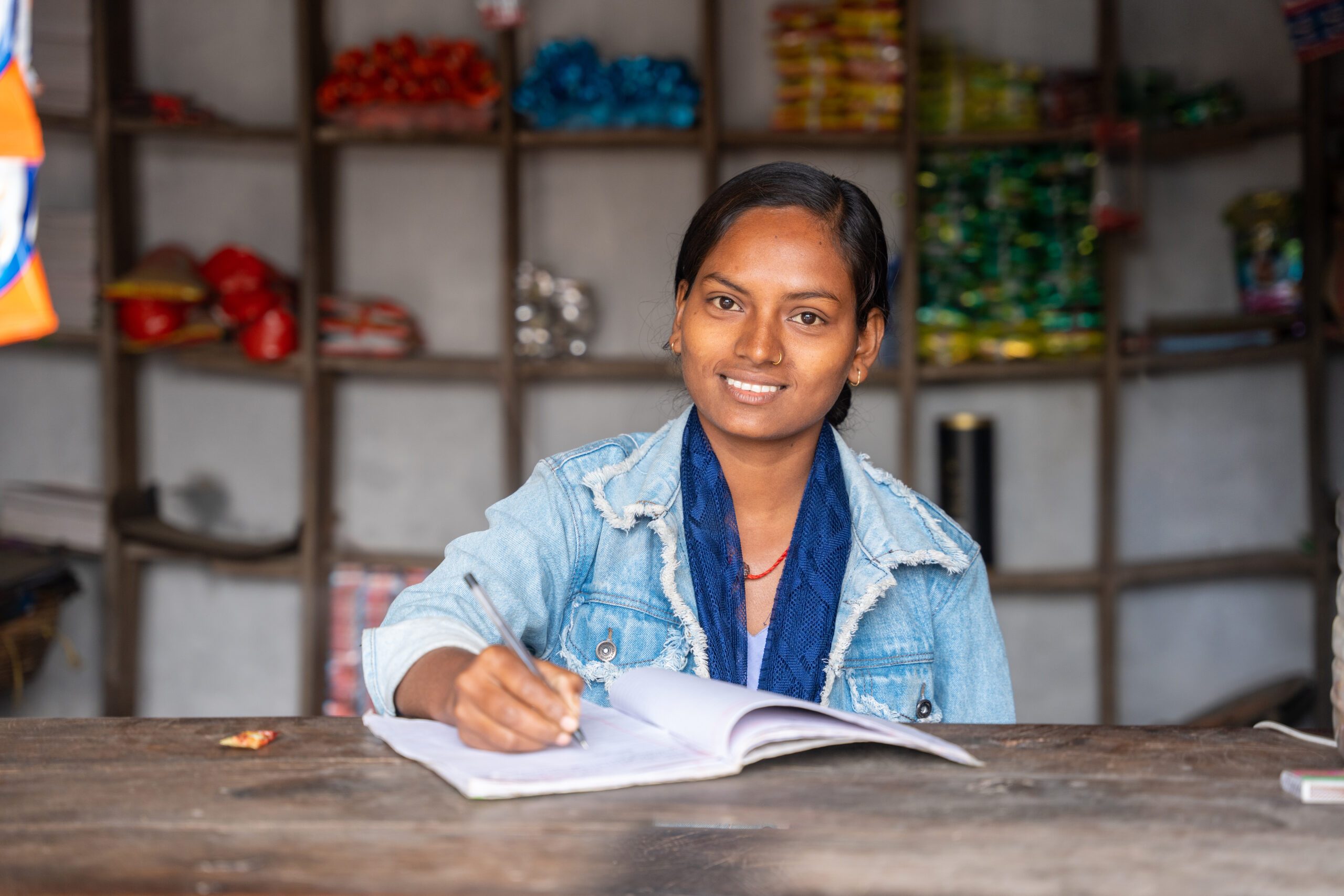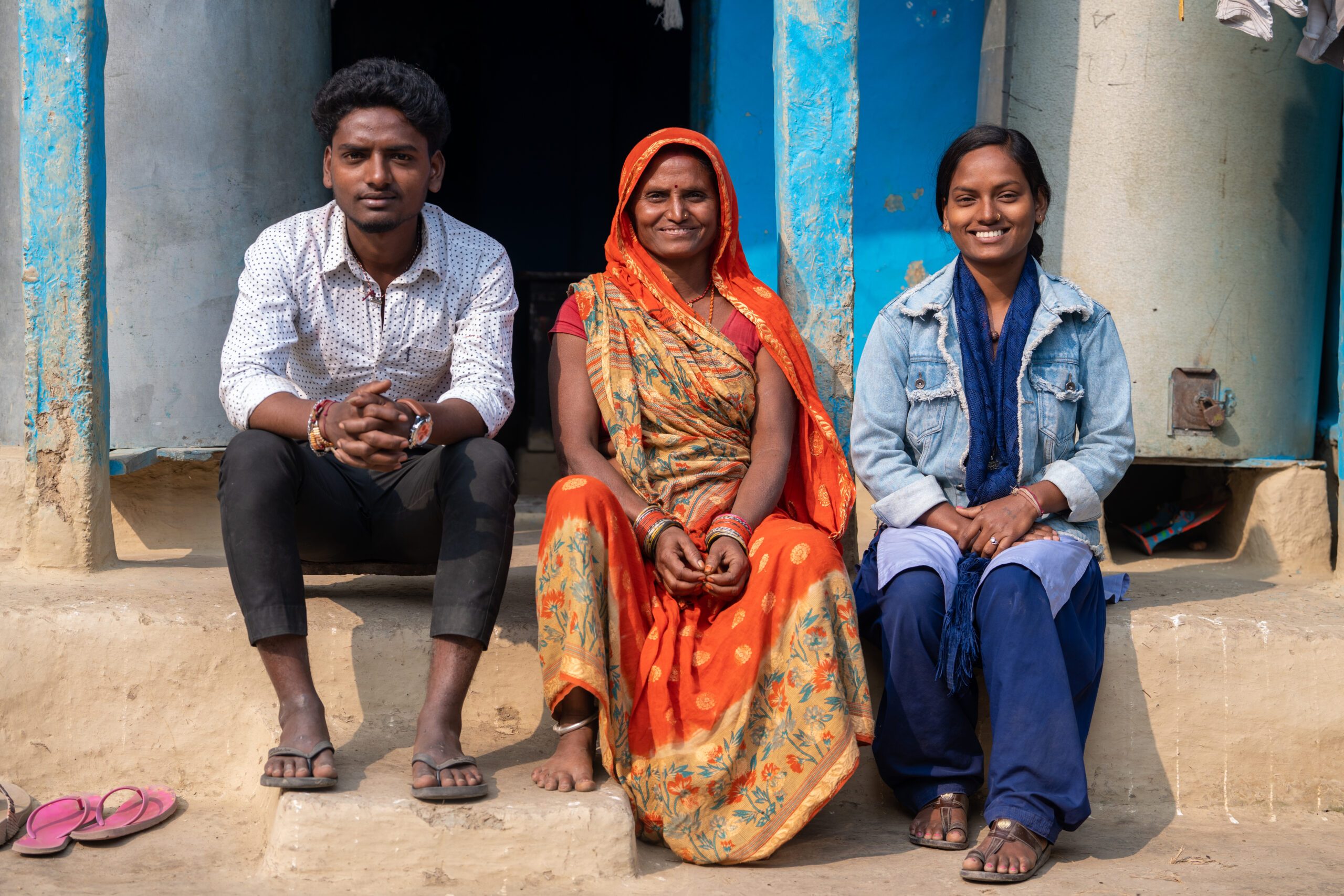Ashiya is building a business before a marriage
At only 20, Ashiya is proving that dreams come before marriage. Determined to become independent, she has opened a small grocery shop that not only supports her education but also helps sustain her family.

“Before, we didn’t even have enough money to buy salt and had to borrow from neighbours just to get by,” Ashiya says. “But now, everything has changed.” Reflecting on the optimism that the shop has brought to her family, who live in a rural area of Dhanusha district in Nepal, she adds, “Now, the neighbours turn to me when they’re in need of money.”
Ashiya is the eldest child in her family and has 2 younger brothers. Her parents struggled to make ends meet through farming and lacked the financial means to buy new clothes for their children. In order to cover their children’s exam fees, Ashiya’s father had to find work as a labourer or borrow money.
Despite facing many challenges, Ashiya was able to continue her studies and is now pursuing a bachelor’s degree. This was made possible through a youth employment project. “I heard through friends that the municipality was accepting applications from girls interested in becoming self-employed,” she explains.
Learning business skills
After applying for the training, Ashiya was shortlisted for an interview and selected to participate in the training programme. Once equipped with the necessary skills, knowledge, and motivation to become an entrepreneur, Ashiya decided to open her own shop. “Although my business is small right now, it has significantly eased my family’s financial situation.”
“Although my business is small right now, it has significantly eased my family’s financial situation.”
Ashiya
Ashiya has made remarkable progress in a short period, which has fuelled her ambition. Her business generates a monthly turnover of NPR 30,000, some of which she reinvests, and the rest she uses to cover household expenses and fund her education.
Ashiya keeps meticulous records of every item sold in her shop each day. “During the entrepreneurship training, we learnt how to create business plans, maintain detailed income and expense records, and save money before spending. These lessons have made running the business much easier for me,” she says.
The success of her shop has boosted her confidence. “I used to feel very shy and scared to talk to men. But now, that’s no longer the case. I can speak openly with everyone.” Her newfound confidence has helped her business thrive. “Good business is all about good communication. Since I can talk to everyone confidently and respectfully, my business is doing well.”
“Good business is all about good communication. Since I can talk to everyone confidently and respectfully, my business is doing well.”
Ashiya
Marriage after building a business

Although she is still young, most of Ashiya’s friends are already married, but she feels no urgency to marry anytime soon. Her priorities are completing her education, becoming financially independent, and improving her family’s financial situation. “Marriage proposals keep coming in, but I have no plans to marry right now. I have a significant responsibility towards my family.”
‘If I got married now, it would be hard to take on the responsibility of two families. Also, my family can’t afford the cost of a wedding at the moment. I’ve only just started earning, so who would take care of my family if I got married? That’s why I plan to get married in three to four years’ time, once I can cover the cost of the wedding myself,” she explains.
Many people in her community admire Ashiya’s entrepreneurial spirit. Parents often express their desire for their children to follow in her footsteps. Some even approach her, asking, “How did you manage to do so well? Could you teach our children, too?” “It makes me proud to be an inspiration to other young people in my community,” she says.
“I feel fulfilled by becoming self-reliant and paving a clear path for my future. But above all, my greatest sense of fulfilment comes from being a source of hope and happiness for my family.”
About the project
The Youth Employment and Entrepreneurship Development (YEED) project is an initiative implemented by Plan International in collaboration with the Janaki Women’s Awareness Society and the local government. Launched as part of Plan International’s commitment to supporting marginalised young people, particularly girls and young women, the project aims to create more employment opportunities and develop entrepreneurial skills among young people in rural and underserved areas of Nepal.
YEED’s primary goal is to address youth unemployment and underemployment by equipping participants with the practical skills needed for self-employment and job creation. The project primarily operates in the eastern region of Nepal, focusing on the Sindhuli and Dhanusha districts. Participants are primarily young people aged 16–30 from marginalised communities, including rural youth, ethnic minorities, and girls who face barriers to education and employment.


